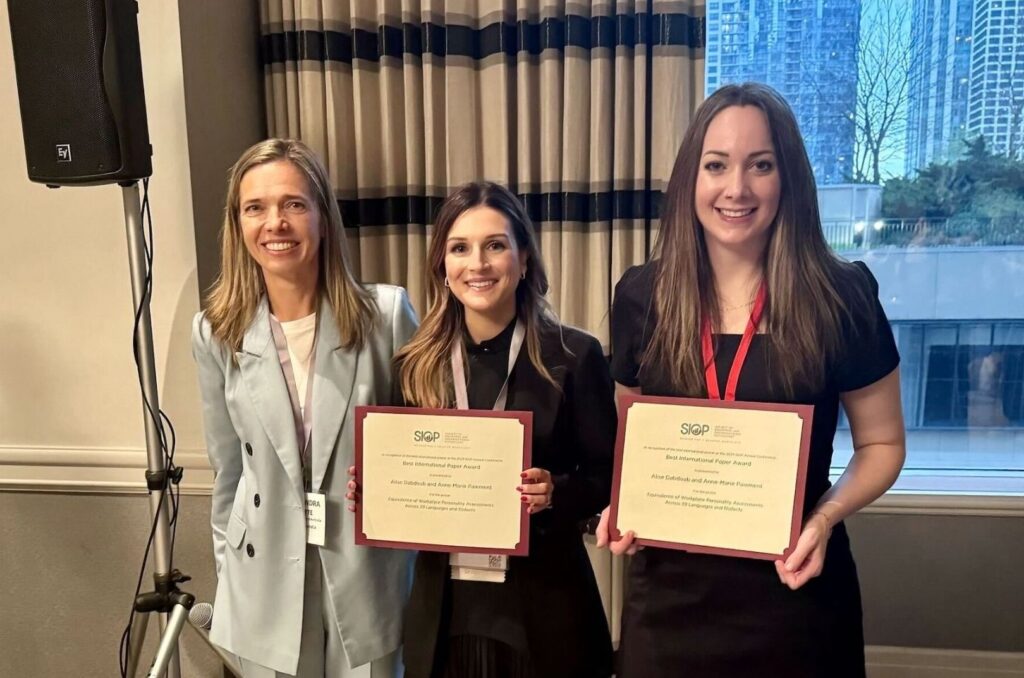
Hogan's Alise Dabdoub, PhD, and Anne-Marie Paiement, PhD, were recognized last night at the 39th annual Society for Industrial and Organizational Psychology (SIOP) conference, in Chicago. Their paper, "Equivalence of Workplace Personality Assessments Across 39 Languages and Dialects," received the SIOP Best International Paper Award for setting the standards for best practice in international assessment processes.
Selected as the winner from an applicant pool of more than 1,000 submissions, the paper highlights the accuracy and validity of Hogan’s assessments across cultures by addressing the challenges of cross-cultural assessment in a globalized world.
A key takeaway from this study is the importance of establishing a strong foundation of standardized translation processes. It recognizes that, in practice, language and cultural nuances may sometimes make it difficult to create accurate translations.
Hogan's solution involves leveraging the cultural and linguistic expertise of translators whose nuanced work is sense-checked through “reverse translation” and pilot testing before approval. This allows the personality constructs to be measured consistently across cultures, holding universal relevance.
Alise Dabdoub, PhD, director of product innovation and coauthor of the paper, commented: “What this means in practical terms is that if we were hiring someone for a role and the job candidates were from all different countries and took the assessments in all different languages, it would be fair to compare their scores to decide who to select for the job. The assessments are universally relevant across cultural and linguistic differences.”